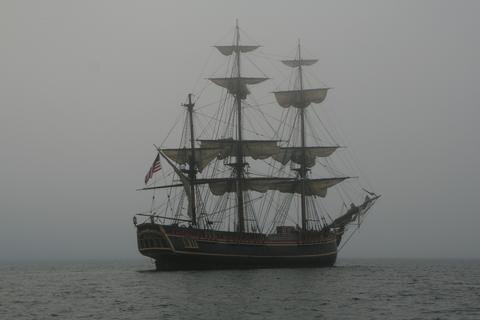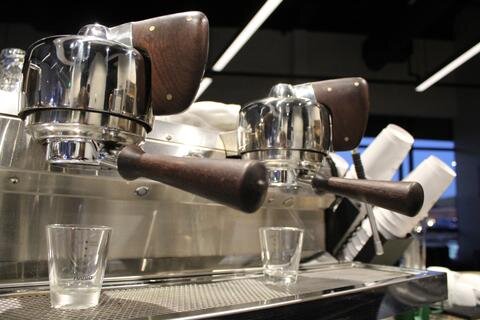
Where Does Coffee Come From? Part 1- The History of Coffee

Where does coffee even come from? That is a complicated question as coffee is a truly global beverage. It is not uncommon for a single coffee bean to visit two or three different continents on its journey from farm to cup. This blog is the first in a series to describe that journey, beginning first with the history of coffee itself.
When it comes history of coffee mystery abounds. But there are a few things we do know for sure. The coffee tree as we know it today originated in Ethiopia. The Dutch helped take it across the Red Sea to Yemen and later to many other parts of the world. But things get a little fuzzy from there.

So how was coffee discovered? There’s a legend about Ethiopian farmers who first learned of coffee’s existence by witnessing its energy-boosting effects. According to the story, a goatherd was tending his flock and he noticed when his goats ate these little red cherries, they would be extremely energetic and not sleep at night. He told this to a local monk who started making drinks from the fruit to keep him awake at night while studying. Word spread and the rest is history. There is no way to know for sure whether or not that story is true, but it sure sounds close to what could have happened.
We do know that sometime after that, farmers in Ethiopia and Yemen began growing coffee. Who first roasted, ground, and brewed coffee in hot water? Some say Ethiopians, others say Yemenis. Eventually, someone in Ethiopia or Yemen figured out how to roast and brew the seed into the tasty beverage we know and love.
When Dutch explorers in the 17th century saw and tasted coffee, they successfully smuggled some coffee seeds and plants out of Arabia to other parts of the world. Most notably they smuggled it into the small Indonesian island of Java. It’s here that the coffee trade really took off, which is why this city is synonymous with coffee (hence “Java,” the slang term for coffee that we have adopted into our name). Austrian and French explorers then took coffee and opened the first coffee shops in the late 1600s.

Unlike their Continental counterparts, the British continued to drink mostly tea. As their colony, the early American settlers continued that trend. However, that would change in the late 18th century with one of the most important events for coffee consumption in the U.S. Ironically, it involved tea, and a lot of it.
Most students of American history will remember that the Boston Tea Party in 1773 was a revolt against the high taxes imposed on tea from England that involved the dumping of that tea into the Atlantic. What you may not remember is that tea continued to be boycotted after the Tea Party. This, of course, greatly increased coffee sales. Coffee buying and consumption in the northeastern states skyrocketed. The Boston Tea Party made drinking coffee a patriotic event that showed American distaste for the British crown. This event marked the beginning of the American influence on coffee culture, and vice versa.
As coffee continued its spread via trade and exploration across the globe, the fruit would change slightly in every region it was planted to adapt to the environment. This created variations in seed size, density, and flavor that eventually became many of the varieties we have today, although some coffee varieties have been developed synthetically. Much like the bean itself, the culture surrounding it- brew methods, the introduction of milk and sugar, roast strategies- took shape depending on the location. Some countries, like Peru, produce a lot of coffee but do not really consume it. Others, like the U.S. cannot produce coffee, (the growing conditions are not ideal) but consume more than their fair share. Nothing brings the world together quite like coffee.
There are a few other important events in modern coffee culture that need to be mentioned. First, was the mass production of coffee by Hills Bros. Coffee in 1900 in San Francisco. R.W. Hills stumbled upon a vacuum packing process that removes air from the package. This allowed coffee to stay fresher during shipping, drastically increasing its shelf life. Coffee could then be shipped all over the country to grocery stores, making in-home coffee brewing and drinking much easier.
Second, was the invention of the espresso machine. There are two men credited with the invention of this wonderful gift to coffee. Luigi Bezzera is credited with inventing the first machine in 1901 in Italy. He debuted it at the Milan International Fair in 1906 and the world was changed forever. Then in the late 1930’s another Italian, Achille Gaggia, took it a step further when he developed the high-water pressure extraction method still used by modern machines today. He wanted to improve upon the steam method Bezzera developed several years earlier and did just that. These two gentlemen helped create the European cafe boom in the 50s and 60s.

Finally, we can’t discuss coffee history, especially American coffee history, without mentioning Starbucks. These days mentioning that name in specialty coffee shops can be met with disdain. It is true that much of the coffee that comes from Starbucks is over roasted and the cafes tend to focus on the sweeter side of drinks. However, their contribution to today’s coffee scene and attention to higher quality service and coffee can’t be ignored. Without Starbucks, it is doubtful the average American would even know the word “latte.”
That brings us to 2019. Here at Baba Java we’re committed to taking the coffee experience even further and being a supporter of what’s to come in the global coffee industry. We are a “third wave” specialty coffee roaster and café committed to sourcing, roasting, and serving excellent coffee. Quality is the name of the game at Baba Java and that is something we refuse to sacrifice. We know how far coffee has come- from an unknown goat stimulant to a global phenomenon- and we know coffee has so much further left to go. We intend to see just how far it will go.
